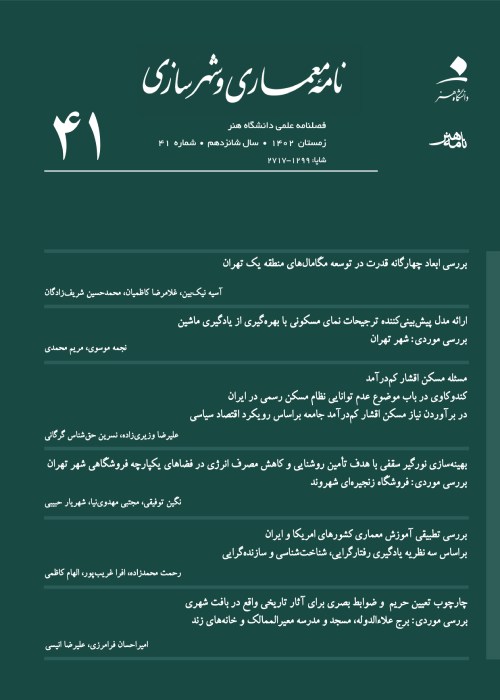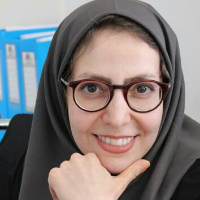Analysis of Final Urban Design Studio Course Outline based on a Comparison between Skills Required in the Profession and That of Learned in the University
Considering that knowledge, skill, and value are the three most important criteria for an urban designer, the present study aims to examine the general and specialized skills that are required by urban designers. Generally, the pedagogy of urban design and its teaching methods is one of the most important research issues that have not received much attention. However, research in the field of education in each discipline can help the graduates succeed in various fields. In the meantime, the acquired and expected skills of urban designers are one of the research fields related to urban design pedagogy that can lead to clarification and even guide the teaching methods. Since the role of studios in improving skills is very practical, the special emphasis of this article is to examine the improved and developed skills in the final studio of urban design, which is a platform for testing the theoretical and experimental knowledge learned in the other courses. According to the purpose of the research, after formulating a conceptual framework based on the interrogative method and developing the evaluation framework of this studio, three types of evaluation methods for educational programs have been used including goal-oriented method, expert-based method, and participation-based method. The research method in this section is based on the mixed analysis method. In the section reviewing the approved educational programs in the field of urban design in Iran in 2009 and 2013, the qualitative method was used. For reviewing the educational program of urban design studios in the sample universities around the world that were selected by the non-probability method, also qualitative method was considered appropriate. In reviewing the skills learned in this studio at the university, the views of students in this field in five universities in Tehran, including Tehran University, Shahid Beheshti, Iran University of Science and Technology, Tarbiat Modarres, and University of Art were examined and questioned in 2020. 50 questionnaires were distributed equally in mentioned universities. The data were then analyzed quantitatively with SPSS software. To confirm the results of students’ approach, the viewpoints of professors were also collected through 10 questionnaires. In the next step, to identify the skill gaps between university and profession, the opinion of private-sector employers was obtained by distribution of 12 questionnaires which were then quantitatively analyzed. The results showed that the skills emphasized in the approved curriculum (2013) such as feasibility and implementation skills were considered less important in the universities. According to the students’ viewpoint, this studio prepares them to some extent for entering the profession and less emphasis is placed on the implementation skills. Examining the views of employers and comparing the results with the views of students and professors showed that the most significant gap between the profession and the university is in implementation skills.
Urban design , Education , Skill , Final Studio , Evaluation
- حق عضویت دریافتی صرف حمایت از نشریات عضو و نگهداری، تکمیل و توسعه مگیران میشود.
- پرداخت حق اشتراک و دانلود مقالات اجازه بازنشر آن در سایر رسانههای چاپی و دیجیتال را به کاربر نمیدهد.



